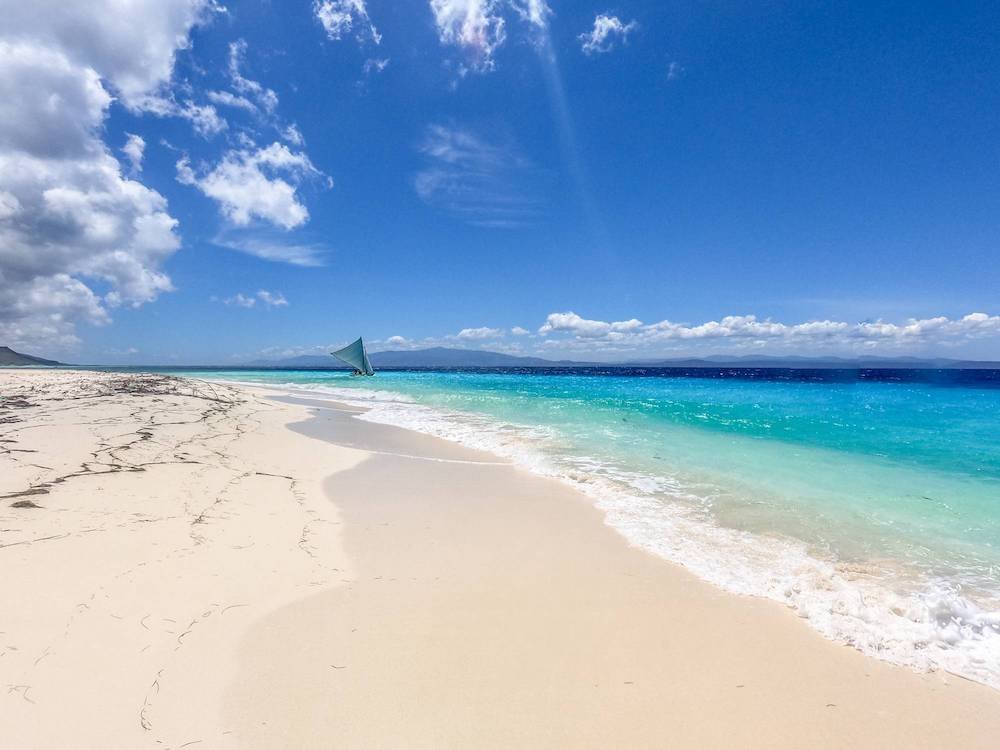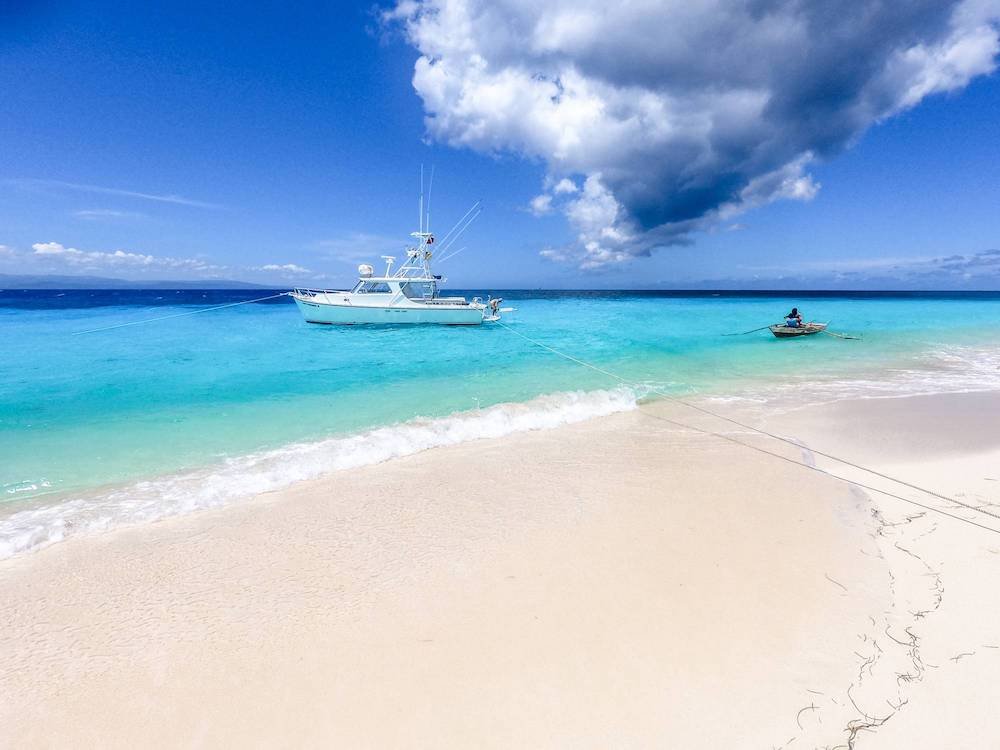
The island of Tortuga is a jewel in the Caribbean, beckons with its pristine beaches, lush landscapes, and a captivating cultural tapestry.
Nestled amidst turquoise waters, this enchanting island has become a coveted destination for travelers seeking an idyllic retreat.
Named after the Spanish word for “turtle,” Tortuga boasts not only a rich history but also a vibrant ecosystem that promises unforgettable experiences.
Picture yourself lounging on powdery white sands, surrounded by the gentle rustle of palm trees, or exploring the charming villages that dot the island.
With its diverse offerings, Tortuga is more than just a destination; it’s a gateway to a world of natural wonders and cultural marvels.
Visiting Tortuga requires more than just the eagerness for adventure; meticulous preparation is the key to unlocking a seamless and rewarding experience.
In this paradisiacal haven, where the azure skies meet the crystalline sea, preparation ensures that every moment is savored without any unwarranted hiccups.
Whether you are a first-time traveler or a seasoned globetrotter, understanding the nuances of Tortuga’s unique charm is crucial.
From the nuances of the local culture to practical aspects like weather conditions and travel logistics, a well-prepared visitor is poised to make the most of their time on the island.
As we delve into the intricacies of what makes Tortuga a destination like no other, let’s explore the important things you need to know before you set foot on its shores.
1. Climate and Weather

Overview of Tortuga’s Climate
Tortuga Island basks in a tropical climate that sets the stage for a sun-kissed paradise. The island experiences two distinct seasons: the dry season and the wet season. Understanding the nuances of Tortuga’s climate is essential for planning an itinerary that aligns with your preferences and desired activities.
The dry season, spanning from December to April, graces visitors with balmy temperatures and clear skies. This period is ideal for those seeking to indulge in water activities, explore the hiking trails, or simply laze on the beaches. The wet season, which runs from May to November, introduces occasional rain showers, nurturing the island’s lush vegetation. While the occasional rain may interrupt outdoor plans, it also contributes to the vibrant greenery that defines Tortuga’s landscapes.
Best Time to Visit
Choosing the optimal time to visit Tortuga depends on the experiences you seek. The dry season is a popular choice for sun-seekers, offering a higher chance of uninterrupted beach days and outdoor adventures. If you are a nature enthusiast, the wet season might appeal to you, as it brings out the island’s natural beauty in full bloom.
It’s worth noting that the months between December and April constitute the peak tourist season, bringing with it higher accommodation rates and bustling crowds. On the other hand, the wet season presents an opportunity for more budget-friendly travel and a quieter atmosphere, allowing visitors to savor the tranquility of Tortuga.
Packing Tips for Different Seasons
Packing for Tortuga requires a thoughtful approach, considering the island’s varying seasons. Here are essential packing tips tailored to each season:
Dry Season (December to April):
- Lightweight, breathable clothing for warm temperatures.
- Sunscreen, hats, and sunglasses for sun protection.
- Swimsuits and beachwear.
- Comfortable walking shoes for exploring.
Wet Season (May to November):
- Waterproof clothing and a compact umbrella.
- Quick-dry clothing for unpredictable rain showers.
- Insect repellent for tropical conditions.
- Sturdy, water-resistant footwear for muddy trails.
Regardless of the season, it’s advisable to pack essentials like a reusable water bottle, a first aid kit, and any necessary medications
2. Travel Logistics

Available Transportation Options
Before embarking on your journey to Tortuga Island, understanding the available transportation options is crucial for a smooth transition from mainland to paradise.
Tortuga offers a range of transportation modes catering to different preferences and budgets.
- Ferry Services: Tortuga is accessible by ferry from several nearby ports. These services provide a scenic journey, allowing travelers to witness the beauty of the Caribbean Sea before reaching the island.
- Private Boat Charters: For a more personalized experience, consider hiring a private boat charter. This option grants flexibility in terms of travel times and routes, ensuring a tailored approach to your arrival.
- Domestic Flights: Some visitors opt for domestic flights to Tortuga, providing a quick and convenient mode of transportation. Local airlines operate regular flights to the island, connecting it with major hubs in the region.
Proximity to Major Airports and Ports
Understanding the proximity of Tortuga to major airports and ports is vital for efficient travel planning. While Tortuga itself doesn’t have an airport, the island is well-connected to nearby hubs:
- La Isabela International Airport (JBQ): Located in Santo Domingo, Dominican Republic, La Isabela International Airport is a common starting point for travelers heading to Tortuga. From here, ferry services and private charters can be arranged.
- Port-au-Prince International Airport (PAP): For those coming from Haiti, Port-au-Prince International Airport is another gateway to Tortuga. Ferry services and private boat charters are available for the onward journey.
- Local Ports: Tortuga is accessible by ferry from ports such as Cap-Haïtien in Haiti and Puerto Plata in the Dominican Republic. These ports serve as embarkation points for an enchanting sea voyage to the island.
Visa Requirements and Travel Documents
Navigating the visa requirements and ensuring you have the necessary travel documents are pivotal steps in preparing for your Tortuga adventure.
- Visa Regulations: Check the visa requirements for entry into the Dominican Republic or Haiti, depending on your chosen route. Verify the duration of stay permitted under the tourist visa and any specific entry conditions.
- Passport Validity: Ensure your passport is valid for at least six months beyond your planned departure date. Some countries may have specific passport validity requirements, so double-check the regulations applicable to your nationality.
- Entry Fees: Be aware of any entry fees or taxes that may apply upon arrival in Tortuga. These fees can vary, so it’s prudent to have the necessary amount in the local currency.
3. Accommodations

Types of Accommodations Available on the Island
Tortuga Island offers a diverse range of accommodations, ensuring there’s a perfect haven for every type of traveler.
From beachfront resorts to charming guesthouses, the island caters to various preferences.
Here are some types of accommodations you can consider:
- Beach Resorts: Experience luxury amidst the natural beauty of Tortuga by choosing one of the beach resorts. These establishments often offer a range of amenities, including spa services, water sports facilities, and private beach access.
- Guesthouses and Bed & Breakfasts: For a more intimate and local experience, guesthouses and B&Bs provide cozy accommodations with personalized service. Engage with the community and enjoy the comforts of a home away from home.
- Eco-Lodges: Embrace the natural surroundings of Tortuga by opting for eco-friendly lodges. These accommodations prioritize sustainability and offer a unique experience for environmentally conscious travelers.
- Vacation Rentals: Consider renting a villa or apartment if you prefer more privacy and independence. Vacation rentals allow you to create your schedule while enjoying the comforts of a fully-equipped home.
Popular Hotels or Resorts
Tortuga Island boasts an array of acclaimed hotels and resorts, each offering a distinct ambiance and set of amenities.
Here are some popular choices that consistently receive positive reviews from visitors:
- Azure Haven Resort: Nestled along the pristine shores, this resort is renowned for its luxurious accommodations, gourmet dining options, and panoramic views of the Caribbean Sea.
- Tropical Retreat Hotel: Ideal for those seeking a blend of comfort and affordability, this hotel provides a central location, friendly staff, and well-appointed rooms.
- Seaside Paradise Villas: Perfect for families or larger groups, these villas offer spacious accommodations with private pools, ensuring a tranquil and exclusive retreat.
Booking Tips and Recommendations
When booking accommodations on Tortuga Island, consider the following tips to enhance your overall experience:
- Book in Advance: Especially during the peak tourist season, securing your accommodation in advance is advisable. This ensures availability and often comes with better rates.
- Read Reviews: Gain insights from fellow travelers by reading reviews on various booking platforms. Look for reviews that highlight aspects important to you, such as location, cleanliness, and customer service.
- Check Cancellation Policies: Given the unpredictability of travel, opt for accommodations with flexible cancellation policies. This provides a safety net in case your plans need adjustment.
- Explore Package Deals: Some resorts offer package deals that include accommodation, meals, and activities. Explore these options to potentially save on overall costs and streamline your planning.
4. Local Cuisine

Overview of Traditional Tortugan Dishes
Tortuga Island is not only a feast for the eyes but also a culinary haven, offering a delightful array of traditional dishes that reflect the island’s rich cultural heritage.
Exploring the local cuisine is an integral part of the Tortugan experience, allowing visitors to savor the unique flavors and ingredients that define the island’s gastronomy.
- Coco Frio: A refreshing beverage, Coco Frio is a drink made from chilled coconut water served straight from the coconut. It’s the perfect companion for warm days on the beach, providing hydration with a touch of tropical sweetness.
- Conch Salad: Tortuga’s coastal location makes conch a staple in its cuisine. Conch salad, a zesty dish combining fresh conch, citrus juices, peppers, and herbs, offers a flavorful and refreshing taste of the sea.
- Rice and Peas: A classic side dish, rice and peas is a savory combination of rice, pigeon peas, coconut milk, and various spices. It’s a staple that accompanies many main dishes, providing a taste of the island’s culinary traditions.
Recommended Local Restaurants and Eateries
To truly immerse yourself in Tortugan cuisine, consider dining at some of the island’s acclaimed restaurants and eateries:
- Seafront Bistro: Overlooking the azure waters, this bistro is celebrated for its seafood delicacies. From grilled lobster to conch fritters, the menu showcases the freshest catches, prepared with a culinary finesse.
- Mango Grove Cafe: Nestled amidst lush greenery, this cafe offers a fusion of traditional Tortugan dishes and international flavors. The laid-back atmosphere and flavorful dishes make it a favorite among both locals and visitors.
- Island Spice Grill: For those seeking a taste of local spices and bold flavors, Island Spice Grill is a must-visit. From jerk chicken to plantain dishes, the menu captures the essence of Tortugan culinary diversity.
Dietary Considerations for Visitors
When indulging in Tortugan cuisine, it’s essential to consider dietary preferences and restrictions.
Here are some tips for visitors with specific dietary considerations:
- Vegetarian and Vegan Options: While Tortugan cuisine is rich in seafood, many restaurants offer vegetarian and vegan options. Look for dishes featuring tropical fruits, vegetables, and plant-based proteins.
- Gluten-Free Choices: Communicate any gluten-related dietary restrictions to restaurant staff, as some traditional dishes may contain wheat-based ingredients. Many establishments, however, are accommodating and can tailor meals to meet specific dietary needs.
- Allergies and Dietary Restrictions: Inform restaurant staff of any allergies or dietary restrictions to ensure a safe dining experience. Chefs are often willing to customize dishes to accommodate individual needs.
5. Language and Communication

Primary Language Spoken on the Island
The linguistic landscape of Tortuga Island reflects its diverse cultural influences.
The primary languages spoken on the island are Haitian Creole and Spanish, owing to its proximity to both Haiti and the Dominican Republic.
While these languages are widely understood, it’s worth noting that many locals also have a proficiency in English, particularly in areas frequented by tourists.
Basic Local Phrases for Tourists
Engaging with the local community through language can significantly enhance your experience on Tortuga Island. Here are some basic phrases in Haitian Creole and Spanish that can be useful for tourists:
Haitian Creole:
- Bonjour – Good morning
- Bonswa – Good evening
- Orevwa – Goodbye
- Tanpri – Please
- Mèsi – Thank you
- Kijan ou ye? – How are you?
- Mwen byen, mèsi – I’m fine, thank you
- Kote WC la? – Where is the restroom?
Spanish:
- Hola – Hello
- Buenas noches – Good night
- Adiós – Goodbye
- Por favor – Please
- Gracias – Thank you
- ¿Cómo estás? – How are you?
- Estoy bien, gracias – I’m fine, thank you
- ¿Dónde está el baño? – Where is the restroom?
Learning and using these phrases not only facilitates communication but also demonstrates respect for the local culture, fostering positive interactions with residents.
Language Challenges and Solutions
While English is widely understood in tourist areas, language challenges may arise in more remote locations or when interacting with individuals who primarily speak Haitian Creole or Spanish. Here are some common challenges and solutions:
- Language Barrier: In areas where English may not be prevalent, a language barrier can pose challenges. However, locals are often patient and appreciative of efforts to communicate. Utilizing basic phrases, gestures, and translation apps can bridge communication gaps.
- Guided Tours and Services: Opting for guided tours or services that offer English-speaking guides can be a solution for those less confident in Haitian Creole or Spanish. Guides provide valuable insights, enhance the experience, and assist with communication.
- Translation Apps: Modern technology offers a helpful solution to language challenges. Utilize translation apps on your smartphone to facilitate real-time communication. These apps can translate spoken language, text, and even images.
6. Cultural Etiquette

Overview of Tortugan Culture
Tortuga Island, with its rich history and diverse influences, boasts a vibrant cultural tapestry that captivates visitors.
Understanding and respecting the local culture is an integral part of any journey to this enchanting destination.
- Cultural Fusion: Tortugan culture is a harmonious blend of Haitian and Dominican influences, creating a unique identity that is reflected in the island’s art, music, and traditions.
- Celebrations and Festivals: The island comes alive during various celebrations and festivals, where locals showcase their vibrant traditions through dance, music, and colorful costumes. These events provide a wonderful opportunity for visitors to immerse themselves in the local culture.
Customs and Traditions
To navigate Tortuga’s cultural landscape with respect and understanding, it’s essential to be aware of some of the customs and traditions that hold significance on the island:
- Greeting Etiquette: A warm and friendly greeting is customary in Tortuga. A handshake or a simple “Bonjour” or “Hola” is a polite way to initiate interactions.
- Respect for Elders: Showing respect to elders is deeply ingrained in Tortugan culture. If you’re unsure about local customs, observing and following the lead of locals can guide your behavior.
- Traditional Clothing: During special occasions and festivals, locals may wear traditional clothing that reflects the island’s cultural heritage. It’s respectful to admire and appreciate these garments without intruding on personal space.
Respectful Behavior for Tourists
Respecting the local culture is crucial for fostering positive interactions and leaving a lasting impression as a responsible traveler. Here are some tips on respectful behavior for tourists in Tortuga:
- Cultural Sensitivity: Be mindful of cultural nuances, avoiding behaviors that may be considered disrespectful. For instance, it’s customary to ask for permission before taking photographs of individuals or during cultural events.
- Conservation Efforts: Tortuga is home to unique flora and fauna, and conservation is a shared responsibility. Follow designated paths, adhere to environmental guidelines, and participate in responsible tourism practices to contribute to the preservation of the island’s natural beauty.
- Support Local Artisans: Purchase locally crafted souvenirs and artwork to support the island’s artisans. This not only provides meaningful mementos but also contributes to the local economy.
- Learn Basic Phrases: Demonstrating an effort to speak the local language, even if only a few phrases, is appreciated. Locals often respond positively when visitors show an interest in their culture and language.
7. Safety Tips

Overview of Safety Conditions on the Island
Tortuga Island, with its serene landscapes and warm hospitality, generally maintains a safe environment for visitors.
However, like any travel destination, it’s important to be mindful of safety considerations to ensure a secure and enjoyable experience.
- Local Authorities: Familiarize yourself with local laws and regulations. While Tortuga is known for its welcoming atmosphere, respecting local rules contributes to a safe and harmonious visit.
- Weather Awareness: Stay informed about weather conditions, especially during the hurricane season. While the island has effective disaster management systems in place, it’s essential for visitors to be aware of any weather-related advisories.
Health Precautions and Vaccinations
Prioritizing your health is crucial when traveling to any destination. Here are some health precautions and vaccination recommendations for visitors to Tortuga:
- Routine Vaccinations: Ensure your routine vaccinations, such as measles, mumps, rubella, diphtheria, and tetanus, are up to date before traveling.
- Hepatitis A and B: Consider getting vaccinated for hepatitis A and B, as these diseases can be transmitted through contaminated food and water.
- Mosquito Protection: As with many tropical destinations, Tortuga may have mosquitoes. Use insect repellent, wear long sleeves and pants, and consider a bed net to protect against mosquito-borne illnesses.
- Safe Food and Water Practices: Consume only properly cooked food and drink bottled or treated water. Avoid street food if you are unsure about its preparation.
8. Wildlife and Nature
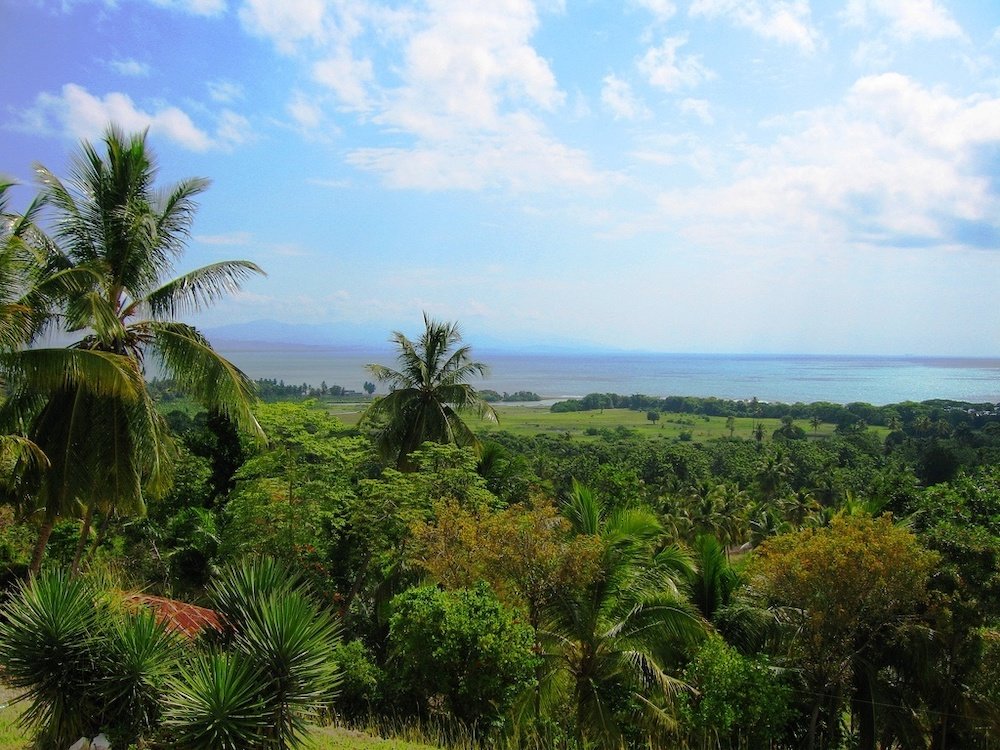
Unique Flora and Fauna on Tortuga
Tortuga Island is a haven for nature enthusiasts, boasting a diverse range of flora and fauna that adds to its allure.
From pristine beaches to lush interiors, the island’s ecosystem showcases a remarkable variety of life:
- Marine Life: The surrounding waters are teeming with marine life, including colorful coral reefs, tropical fish, and even the occasional sea turtle. Snorkeling and diving enthusiasts will be treated to a mesmerizing underwater world.
- Avian Diversity: Tortuga is home to a variety of bird species, from coastal shorebirds to inland species. Birdwatchers will appreciate the opportunity to spot unique avian residents against the backdrop of the island’s natural beauty.
- Tropical Flora: The island’s landscapes are adorned with tropical flora, including palm trees, exotic flowers, and vibrant foliage. Nature walks through the interior reveal the rich botanical diversity that defines Tortuga.
Responsible Tourism and Conservation Efforts
Preserving Tortuga’s natural beauty is a collective responsibility, and as a visitor, there are ways to engage in responsible tourism and support conservation efforts:
- Leave No Trace: Respect the environment by adhering to the principles of “Leave No Trace.” Dispose of waste responsibly, avoid damaging vegetation, and stay on designated paths to minimize ecological impact.
- Support Conservation Initiatives: Learn about local conservation projects and consider contributing to or volunteering with organizations dedicated to preserving Tortuga’s ecosystems. This can include coral reef restoration, beach cleanups, or wildlife monitoring programs.
- Responsible Wildlife Interaction: If engaging in activities like snorkeling or wildlife tours, choose operators that prioritize responsible and sustainable practices. Maintain a respectful distance from wildlife and follow guidelines to minimize disturbance.
Outdoor Activities and Nature Tours
Immerse yourself in Tortuga’s natural wonders by partaking in outdoor activities and nature tours that showcase the island’s breathtaking landscapes:
- Snorkeling and Diving: Explore the vibrant underwater world surrounding Tortuga through guided snorkeling or diving excursions. Discover coral formations, marine life, and perhaps encounter gentle sea turtles.
- Nature Walks and Hiking Trails: Traverse the island’s interior on nature walks or hiking trails that offer glimpses of unique flora and fauna. Knowledgeable guides can provide insights into the ecological significance of different areas.
- Boat Tours: Embark on boat tours around the island to witness coastal beauty, explore hidden coves, and enjoy the tranquility of the Caribbean Sea. Some tours may include stops at key wildlife viewing areas.
9. Local Attractions
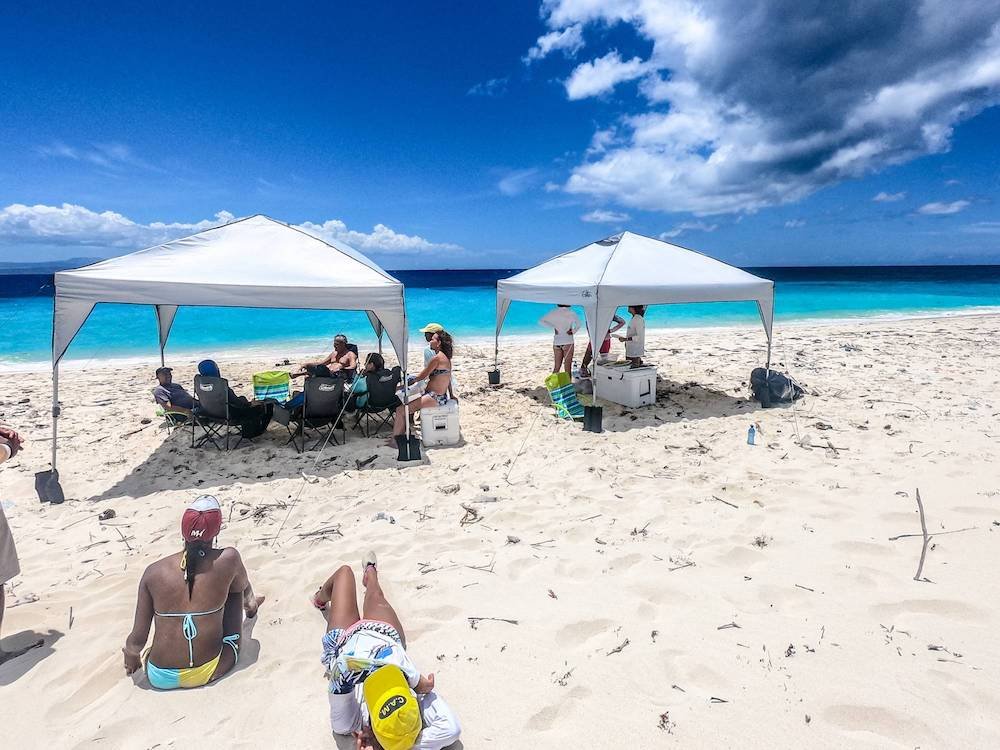
Must-Visit Landmarks and Attractions
Tortuga Island is adorned with captivating landmarks and attractions that weave together its rich history, natural beauty, and vibrant culture. Ensure you don’t miss these must-visit sites during your exploration:
- Pirate’s Cove: Embrace the island’s legendary past by visiting Pirate’s Cove, a scenic inlet rumored to be a favored hiding spot for pirates. The cove’s crystal-clear waters and dramatic cliffs offer a picturesque setting.
- Fort Santa Catalina: Delve into Tortuga’s maritime history by exploring Fort Santa Catalina. This well-preserved fortress dates back to the 17th century and provides panoramic views of the surrounding sea and landscapes.
- Tortuga Bay Beach: Relax on the pristine shores of Tortuga Bay Beach, a stretch of white sand bordered by turquoise waters. Whether you’re seeking sun-soaked tranquility or engaging in water activities, this beach is a haven for all.
Historical Sites and Museums
Immerse yourself in the island’s fascinating history by visiting historical sites and museums that offer glimpses into Tortuga’s past:
- Pirate Museum: Uncover the tales of legendary pirates who once roamed the Caribbean at the Pirate Museum. Exhibits showcase artifacts, maps, and stories that bring the island’s swashbuckling history to life.
- Tortuga Historical Center: Explore the Tortuga Historical Center to gain deeper insights into the island’s cultural heritage. Exhibitions span from indigenous influences to the colonial era, offering a comprehensive view of Tortuga’s evolution.
- Columbus House: Visit Columbus House, a historical site believed to have been visited by Christopher Columbus during his voyages. The site provides a connection to the island’s exploration and discovery.
Recommended Guided Tours
Maximize your exploration of Tortuga by opting for guided tours that offer informative insights and curated experiences:
- Island Discovery Tour: Embark on a comprehensive island discovery tour that covers key landmarks, historical sites, and natural wonders. Knowledgeable guides share anecdotes and facts, providing a holistic view of Tortuga.
- Snorkeling Adventure: Join a guided snorkeling adventure to explore the vibrant marine life surrounding the island. Professional guides ensure a safe and educational experience, making it an ideal activity for both beginners and experienced snorkelers.
- Cultural Walking Tour: Immerse yourself in the local culture with a guided cultural walking tour. Stroll through charming villages, interact with residents, and witness traditional customs that showcase the island’s authenticity.
10. Currency and Finances

Local Currency Information
Understanding the local currency is essential for seamless transactions and effective budgeting during your stay on Tortuga Island. The official currency used is:
- Dominican Peso (DOP): The Dominican Peso is the official currency of Tortuga Island. It’s advisable to familiarize yourself with the current exchange rates to make informed financial decisions during your visit.
Accepted Payment Methods
While the primary currency is the Dominican Peso, there are various payment methods accepted across the island:
- Cash: Cash is widely used for small transactions and in local markets. Ensure you have a sufficient amount of Dominican Pesos on hand, especially when visiting more remote areas where card payments may be less common.
- Credit and Debit Cards: Major credit and debit cards (such as Visa and Mastercard) are accepted at many hotels, restaurants, and larger establishments. However, it’s advisable to carry some cash for places that may not have card facilities.
- ATMs: ATMs are available in more populated areas, providing a convenient way to withdraw local currency. Check with your bank about international transaction fees and inform them of your travel plans to avoid any issues with using your cards abroad.
Budgeting Tips for Travelers
Efficient budgeting ensures a stress-free and enjoyable experience on Tortuga Island. Consider the following tips to manage your finances effectively:
- Exchange Currency in Advance: Exchange a small amount of currency before arriving on the island to cover immediate expenses. Local banks or currency exchange services can provide Dominican Pesos.
- Local Cuisine and Street Food: Explore local markets and street food stalls for affordable and authentic meals. Sampling local cuisine is not only a culinary delight but can also be budget-friendly.
- Water and Snacks: Carry a reusable water bottle to stay hydrated, and consider bringing snacks for outings. This can help you save on expenses and ensure you have provisions for excursions to more remote areas.
- Compare Prices: When shopping or booking tours, compare prices from different vendors to ensure you get the best value for your money. Be open to negotiating prices in local markets.
- Tipping Etiquette: While tipping is not always obligatory, it’s customary to leave a gratuity for good service, typically around 10% to 15% in restaurants. Check if a service charge is already included in your bill.
11. Souvenirs and Shopping
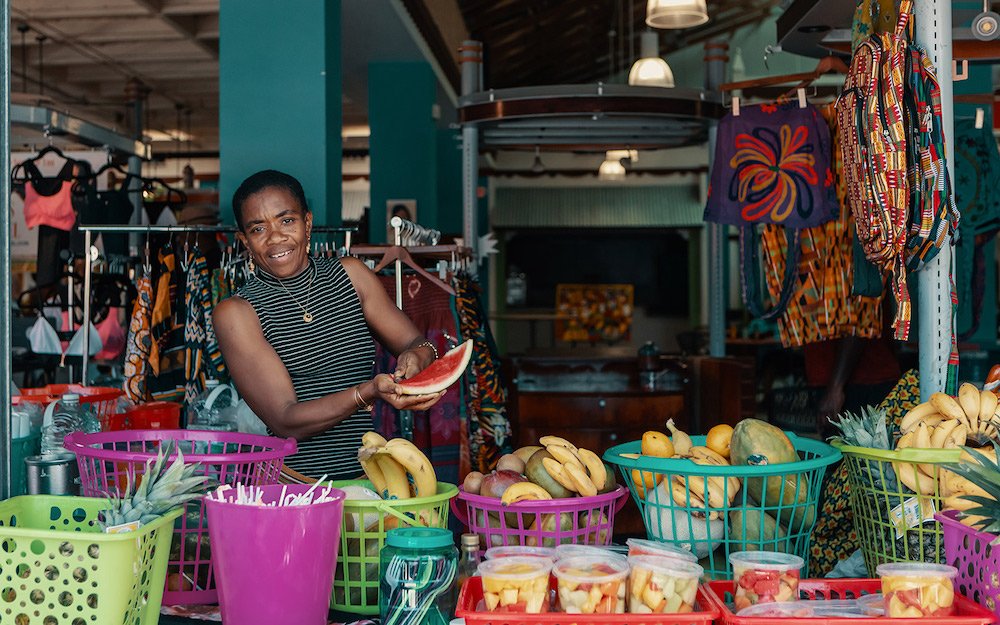
Popular Local Crafts and Products
Bringing home a piece of Tortuga Island through locally crafted souvenirs adds a special touch to your travel memories. Here are some popular local crafts and products to consider:
- Handwoven Textiles: Explore vibrant handwoven textiles, including traditional fabrics and garments that showcase the artistry of local craftsmen.
- Wooden Artwork: Talented artisans on Tortuga create exquisite wooden artwork, from carved sculptures to decorative items that reflect the island’s natural beauty.
- Seashell Jewelry: Adorn yourself with unique seashell jewelry, crafted from shells found along the island’s pristine beaches. These pieces often capture the essence of Tortuga’s coastal charm.
Best Shopping Areas and Markets
Discover the best shopping areas and markets on Tortuga Island, where you can find a diverse array of souvenirs and local products:
- Tortuga Artisan Market: Located in the heart of the island, the Tortuga Artisan Market is a hub for locally made crafts. Here, you’ll find an assortment of handmade goods, from jewelry to artwork, showcasing the talents of local artisans.
- Coastal Village Shops: Explore the charming shops in coastal villages, where you can discover unique souvenirs while enjoying the laid-back atmosphere. These shops often feature a variety of crafts and keepsakes.
- Beachfront Boutiques: Along the beachfront, you’ll find boutiques offering a curated selection of local products. From beachwear to handcrafted items, these boutiques provide a convenient shopping experience with a view.
Bargaining Tips for Tourists
Engaging in a bit of bargaining can be a customary part of the shopping experience on Tortuga Island. Here are some tips for tourists:
- Be Polite and Friendly: Approach bargaining with a friendly demeanor. Politeness can go a long way in negotiations, and a positive interaction often results in a better deal.
- Know the Local Customs: Understanding local customs regarding bargaining is crucial. In some markets, bargaining is expected, while in others, prices may be fixed. Observe the behavior of locals to gauge the appropriateness of negotiating.
- Start with a Counteroffer: When given a price, consider offering a counteroffer that is lower but still reasonable. This initiates the bargaining process and allows for a middle ground to be reached.
- Be Willing to Walk Away: If the price doesn’t align with your budget, be prepared to walk away. Often, this signals to the seller that you are serious about your budget, and they may be more willing to adjust the price.
- Buy in Bulk: If purchasing multiple items from the same vendor, inquire about the possibility of a bulk discount. Sellers may be more accommodating when it comes to larger transactions.
12. Hidden Gems and Off-the-Beaten-Path Adventures

Lesser-Known Attractions and Sites
Tortuga Island harbors hidden gems and lesser-known attractions that offer a more intimate and authentic experience. Explore these off-the-beaten-path sites to uncover the island’s hidden treasures:
- Secret Coves and Beaches: Venture beyond the popular beaches to discover secret coves and hidden stretches of sand. These secluded spots often provide tranquility and a more private connection with Tortuga’s coastal beauty.
- Inland Waterfalls: Delve into the island’s interior to find enchanting waterfalls tucked away in lush landscapes. These lesser-known natural wonders are ideal for those seeking a refreshing escape and a chance to connect with nature.
- Local Art Studios: Visit local art studios and galleries that may not be as widely recognized. Engage with resident artists, learn about their creative processes, and acquire unique artworks directly from the source.
Unique Experiences Away from the Tourist Crowds
Escape the tourist crowds and embark on unique experiences that showcase the authentic charm of Tortuga Island:
- Community Events: Check for local community events, festivals, or gatherings. These occasions provide an opportunity to engage with locals, participate in traditional celebrations, and witness the island’s vibrant community spirit.
- Fishing with Locals: Join local fishermen for an authentic fishing experience. This not only allows you to learn traditional fishing techniques but also provides insights into the vital role fishing plays in the island’s culture.
- Cooking Classes: Seek out cooking classes hosted by locals where you can learn to prepare traditional Tortugan dishes. This hands-on experience not only enhances your culinary skills but also provides a deeper understanding of local flavors.
Tips for Discovering Tortuga’s Hidden Treasures
Navigate the quest for Tortuga’s hidden treasures with these tips:
- Connect with Locals: Engage with locals and seek their recommendations for lesser-known attractions. Residents often have insights into hidden gems that may not be widely publicized.
- Explore on Foot: Wander through villages and less-explored areas on foot. Walking allows you to discover charming nooks and crannies that might be missed when traveling by vehicle.
- Ask Locals for Directions: If there’s a specific hidden gem you’re looking for, don’t hesitate to ask locals for directions. They may provide valuable guidance or even accompany you to the off-the-beaten-path location.
- Travel During Off-Peak Hours: Visit popular attractions during off-peak hours to avoid crowds, and take advantage of quieter moments to explore hidden gems without the distraction of many tourists.
- Utilize Local Guides: Consider hiring local guides who specialize in showcasing hidden gems. They possess in-depth knowledge of the island’s secrets and can tailor experiences to your interests.
Conclusion
As you set out to discover the enchanting beauty of Tortuga Island, remember that the magic lies not just in its picturesque landscapes but also in the rich tapestry of its culture, history, and warm-hearted community.
Embrace the opportunity to connect with this hidden gem of the Caribbean, savoring each moment and creating lasting memories.
From the tranquil beaches to the vibrant markets, from the hidden waterfalls to the bustling villages, Tortuga has much to offer to those willing to explore beyond the obvious.
Whether you’re seeking relaxation, adventure, or a cultural immersion, the island welcomes you with open arms.
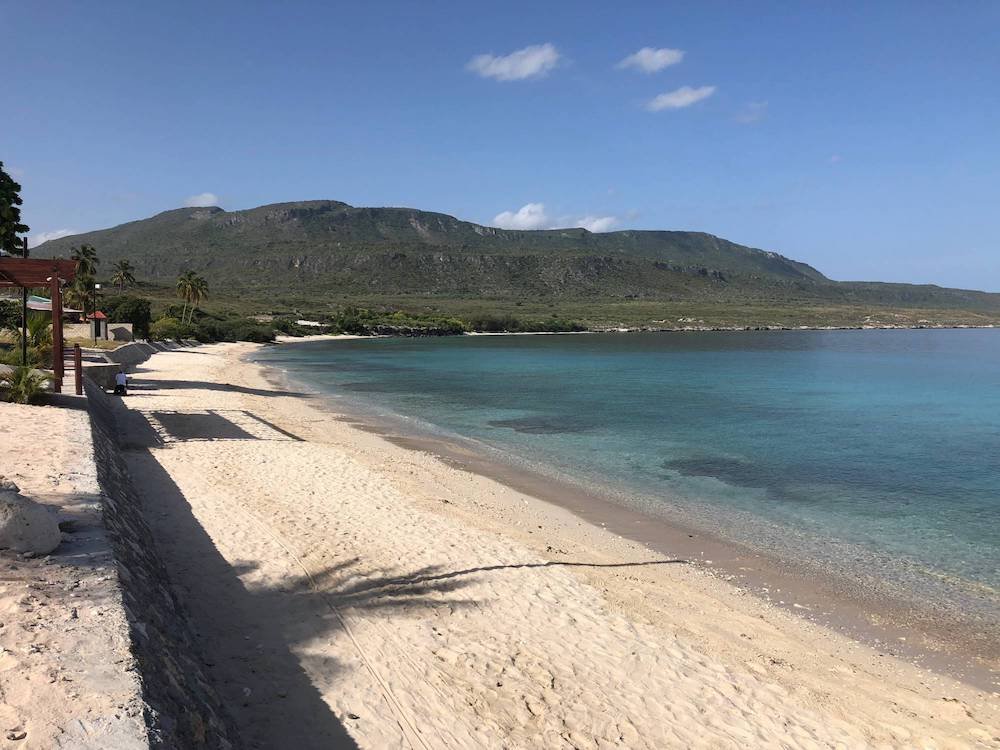
FAQ’s About the Island of Tortuga:
Why is Tortuga Island Famous?
Tortuga Island gained fame primarily due to its historical association with pirates during the 17th century. It was a notorious haven for buccaneers and privateers, making it a symbol of pirate lore. The island’s name itself, “Tortuga,” means turtle in Spanish, possibly referring to the abundance of sea turtles in the surrounding waters. Today, Tortuga’s fame persists as a tropical paradise with a rich history and captivating allure.
Is it Worth Going to Tortuga Island?
Absolutely! Tortuga Island is worth visiting for a multitude of reasons. Its pristine beaches, diverse marine life, lush landscapes, and vibrant culture offer a unique and unforgettable experience. Whether you’re interested in historical sites, outdoor activities, or simply unwinding on secluded shores, Tortuga caters to a range of preferences. The island’s charm, combined with its hidden gems and warm hospitality, makes it a destination well worth exploring.
What Country Owns Tortuga?
Tortuga Island is located in the Caribbean Sea, and it is shared by two countries: Haiti and the Dominican Republic. The western part of the island belongs to Haiti, while the eastern part is part of the Dominican Republic. The division is a result of historical agreements between the two nations.
Does Anyone Live on Tortuga Island?
Yes, there are communities living on Tortuga Island. While it’s not heavily populated, there are villages and towns where residents engage in fishing, agriculture, and, to some extent, tourism-related activities. The population contributes to the island’s unique cultural identity, and interactions with locals can provide a deeper understanding of Tortuga’s way of life.
Can You Visit Tortuga Haiti?
Yes, you can visit the Haitian part of Tortuga Island. Access to the island is typically facilitated through boat tours from coastal towns in Haiti, with some tours offering the opportunity to explore specific areas of the island. Travelers interested in experiencing the Haitian side of Tortuga should plan accordingly, considering transportation options and guided tours for a more enriching visit.
